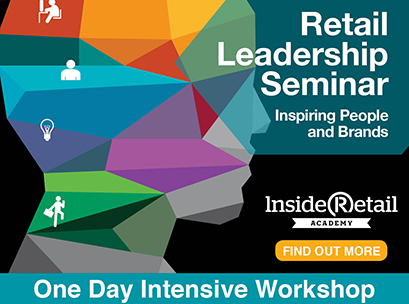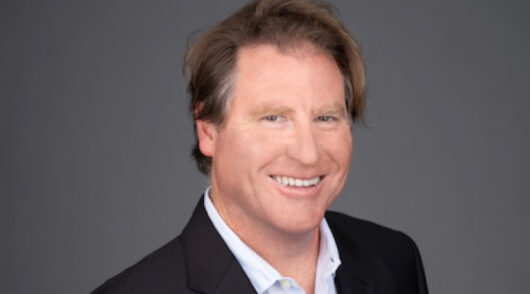 Ahead of Inside Retail Academy’s Leadership Seminar: Inspiring People & Brands, Catherine van der Meulen chats with Kate Mathers from Institute of Executive Coaching and Leadership about mindfulness and what it means for the workforce.
Ahead of Inside Retail Academy’s Leadership Seminar: Inspiring People & Brands, Catherine van der Meulen chats with Kate Mathers from Institute of Executive Coaching and Leadership about mindfulness and what it means for the workforce.
Catherine van der Meulen: There is a lot of buzz around the word mindfulness – where has it all come from?
Kate Mathers: Yes, the word ‘Mindfulness’ has become almost mainstream these days. In the US and UK it’s not unusual to see articles in the press such as “How Mindfulness Changes the Brain” or “Enhanced Productivity resulting from Mindfulness Training”, or a sceptical US 60 Minutes presenter, Anderson Cooper, documenting his mindfulness retreat experience – and subsequent change of mind!
We’re a bit behind here in Australia in regards to corporate mindfulness initiatives, but we’re catching up fast.
Catherine van der Meulen: What is mindfulness?
Kate Mathers: The most commonly used definition is that of Jon Kabat-Zinn, arguably the person who is most responsible for the explosion of secular mindfulness training programs worldwide in the last 30 years or so.
His definition says, “Mindfulness is the awareness that comes from paying attention, on purpose, in the present moment – with kindness and curiosity – to what’s going on for us, internally, and what’s going on around us, externally.”
It sounds simple, but in fact it’s not easy. Our minds are not used to focusing on just one thing, and they also tend to have us existing a great deal of the time in either the past or the future, either rehashing and worrying about what’s already past, or rehearsing anxiously about what may or may not happen in the future. And we can be existing for large amounts of each day, not really present in this moment.
The central element of mindfulness training is mindfulness meditation, where we use tools like our senses, our breath, sound, or walking, as a focus to help bring the mind back over and over again, to the present moment. And if you’ve ever tried this, you’ll know how difficult it is and how much our minds wander off!
Catherine van der Meulen: Mindfulness was one of the most Googled words of 2014, how did the term become such a big deal?
Kate Mathers: I think there are a number of factors leading to the popularity of mindfulness, including the loss of stigma attached to meditation – our culture no longer views things like meditation and yoga as woo-woo or strange.
Mindfulness is now seen as a secular and very human-oriented training. And there is a shift happening towards kinder cultures in the corporate space, and mindfulness training heightens our sensitivity to each other and improves our ability to listen to each other, without pre-judgment.
But by far the most important factors that have led to the adoption of mindfulness initiatives in the corporate sector are the following three things: the explosion of hard science, particularly the neuroscience, underpinning mindfulness training and what it can do for us in terms of mental, physical and emotional health; the unprecedented global levels of stress together with global levels of Attention Deficit Trait; and leading-edge companies worldwide rolling out effective mindfulness training programs – in some cases using mindfulness training as the foundation for organizational effectiveness. And of these three, perhaps the most important factor is the hard science behind what mindfulness training does for our brain and body, and our emotional and mental health and wellbeing.
Catherine van der Meulen: What are the benefits to an organisation of practicing mindfulness?
Kate Mathers: In brief: (1) optimal human functioning, (2) significant reductions in stress, (3) enhanced attention and focus, (4) significant increases in resilience and wellbeing, (5) wiser decision-making, and (6) a kinder, more compassionate, culture where people are more connected and actually care about each other.
There is a substantial body of scientific research over the last three decades showing that mindfulness plays a critical role in optimal human functioning. Importantly, the research has proven repeatedly that mindfulness is a skill that can be trained and learned, and what the research also shows is that people undertaking mindfulness training show improved self-awareness, and in self-regulation of emotions and behaviour – so not reacting from automatic pilot and jumping straight into stress reactivity.
Research also shows improvements in attentional control and focus, and in levels of emotional intelligence; it also reveals significantly improved levels of resilience. All these proven benefits from mindfulness training results in people being more productive, more efficient, less stressed, more innovative, more engaged, more resilient, healthier and happier. It’s becoming clear that companies using mindfulness training as a competitive advantage are not only creating kinder cultures but are also reaping rewards. All good news for the retail sector.
Catherine van der Meulen: We are seeing the state of stress around the globe, what is stress really costing organisations?
Kate Mathers: It’s a sobering fact that here in Australia, 79 per cent of employees are disengaged, leading to lower productivity, innovation and wellbeing (Source: Gallup, 2013). In 2014, stress and mental illness cost Australian business $20 billion annually in lost productivity and labour participation (Mentally Healthy Workplace Alliance). Almost 50 per cent of Australians rated issues in the workplace as a source of stress in 2014 (Australian Psychological Society).
To sustain employee engagement, you must manage workplace stress. Regarding engagement and stress, it’s a fact that too often, leaders at all levels overlook the workplace stressors that undermine engagement and make it difficult for people to continue to work effectively.
How often have you felt as though you were in information overload, with too many windows open, too many programs running? With overloaded circuits, we operate on automatic pilot, not really present. We can feel as though we have a zoo in our heads, and we are catapulted into stress.
Mindfulness training helps people address some of that and gives us some tools through which we can begin to manage ourselves better, see things more clearly, and make wiser decisions – including leaving our current workplace and looking for something new, if that is the wisest decision!
Find out more from Kate Mathers about how mindfulness can reduce stress and create high-performance working environments at Inside Retail Academy’s Leadership Seminar: Inspiring People & Brands.
The one day workshop will take place in Melbourne on October 13 at The Sheraton Melbourne, 27 Little Collins Street, and in Sydney on October 15, at Sydney Sheraton on the Park, 161 Elizabeth Street. Click here for more information.
Kate Mathers is the Principal Mindfulness Trainer at Institute of Executive Coaching and Leadership, she can be contacted by email at katem@iecl.com.





